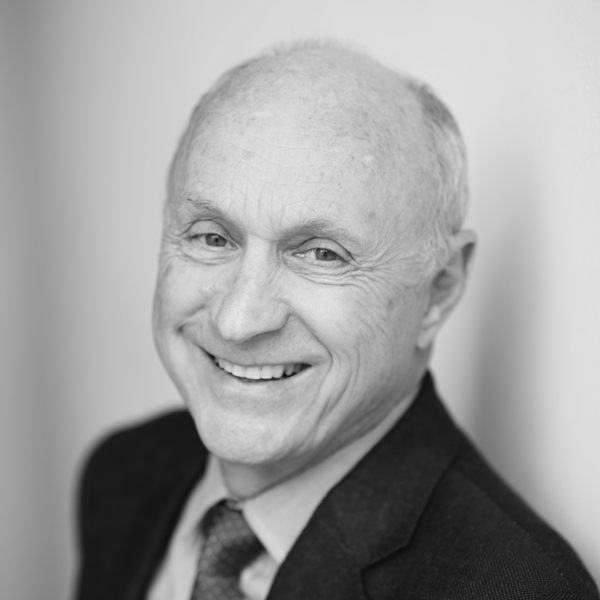Jeff Goldsmith Speaker Biography
Dr. Jeff Goldsmith is a veteran health industry analyst and strategist. He has almost four decades of experience writing and lecturing on health services management and policy. He has lectured at the Graduate School of Business at the University of Chicago, the Wharton School of Finance, Johns Hopkins, Washington University, and the University of California at Berkeley. His interests include biotechnology, health policy, international health systems, and the future of health services.
From 2016 to 2019, Dr. Goldsmith was National Advisor to Navigant Consulting. From 1982 to 1994, Dr. Goldsmith served as National Advisor for Healthcare for the firm Ernst and Young. He has provided strategy consulting to a wide variety of healthcare systems, health plans, supply and technology firms, as well as private equity investors. Before 1982, he was Director of Planning and Government Affairs at the University of Chicago Medical Center and worked in the Illinois Governor’s Office.
Dr. Goldsmith was the recipient of the Corning Award for excellence in health planning from the American Hospital Association's Society for Healthcare Planning in 1990. He has written six print and six online articles for the Harvard Business Review and has been a source for articles on medical technology and health services for the Wall Street Journal, the New York Times, Business Week, Time, STAT, and other publications. Dr. Goldsmith is also a member of the editorial board of Health Affairs.
To book healthcare speaker Jeff Goldsmith, call Executive Speakers Bureau at 901-754-9404.
Sailing into the Typhoon and Coming Out the Other Side
The new Administration in Washington promises wholesale changes in healthcare. Unfortunately, they are likely to reverse a lot of the coverage gains from the Affordable Care Act as well as pressure state Medicaid programs to reduce payments to care systems. There is also likely to be relief from some regulatory pressures. How can CEOs and Board work with their clinicians to improve health system performance in the face of these challenges and create value for patients, employers, and their communities?
2040: A Healthcare Odyssey
This optimistic talk focuses on emerging scientific discoveries that will markedly enhance our capacity to manage both infectious and chronic diseases, notably serious psychiatric illness and neurodevelopmental conditions. They are the 3M’s: mRNA, the microbiome, and microglia. How will discoveries in these venues change our care systems, and what do health system leaders need to do to leverage them? The talk also discusses vulnerability to two key risks: cyberterrorism and drug-resistant infections, and what we can do to minimize the risks. How will the health system change as a result of these opportunities and pressures?
What Does It Mean to be a “Health System"?
Healthcare organizations have grown steadily larger and more complex over the past thirty years. Most of them call themselves “health systems”. But are they really systems and have patients and those who pay for care benefited from this growth and complexity? Why has the “health system” operating performance deteriorated sharply since the historic Affordable Care Act coverage expansion? How can health systems make changes in their operations and management that patients notice? What does it mean to be a health system?
Opiate Crisis: Tip of a Population Health Iceberg
In 2016, more than sixty thousand Americans died of drug overdoses, 42 thousand from opioids. Drug death is the SuperStorm Sandy of public health threats, likely to claim more victims than the AIDS Epidemic. Yet it is the most visible manifestation of a more troubling trend-declining American life expectancy. In both 2015 and 2016, American life expectancy declined, the first two-year decline since the early 1960s. During the same two years, the US spent nearly $7 trillion on healthcare. What are the underlying drivers of this deeply troubling trend., and what can policymakers and the care system do about it?
The Future of Medical Practice: What Does it Look Like?
Physicians have vigorously defended the institution of private medical practice for more than a century. Yet, in the past five years, the medical practice appears to be consolidating under hospital and, to a lesser degree, health plan control. The uncertainties introduced by health reform, economic pressures from the sustained US recession, and the impending retirement of the large baby-boom era cohort of practicing physicians all have contributed to a sense that private medical practice is doomed. Is there a future for private medical practice? This lecture discusses the turnaround strategy for physician practice in the post-health reform era, as well as the role that hospitals, health plans, private equity and technology firms can play in reforming and strengthening medical practice.
Organizing for Risk: How hospitals and physicians can collaborate both to contain cost and improve quality.
Health reform is changing both how and how much the care system is paid. This lecture reviews the history of both hospital and physician efforts both to sponsor and to contract with health plans and discusses how they can become more accountable for both the cost and value of what they do. It will also review what’s happened to the idea of “accountable care organizations” (ACO’s) and what some viable alternatives to the strategy might be.
Health Reform: What can the US Learn from Other Countries The United States spends almost double per capita what other countries spend on healthcare, yet produces inferior health outcomes.
Why does health care cost so much more in the United States than anywhere else in the world? How do other countries finance and organize health care? What can we learn from their experience that will help the United States reshape its health system? What can other countries learn from the United States' experience?
















September 30, 2021